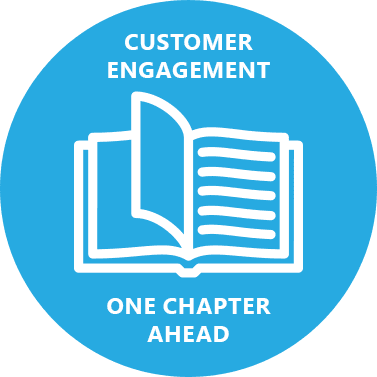Foundational Differentiation: CE Requires Efficient Operationalization of Data

What is data operationalization, and why is it important in life sciences?
The ability to integrate insights from your data into your business workflows is commonly referred to as data operationalization.
Throughout life sciences organizations, functional needs and behaviors have evolved, making data operationalization at scale a vital source of competitive advantage for life sciences.
It is no longer enough to derive business strategy from data to ensure a competitive advantage. Executives now expect real-time updates from the market—and patients and prescribers expect seamless omnichannel experiences. The differentiator is in connecting petabytes of data from multiple sources quickly to optimize tactics.
Today’s customer engagement activities are more targeted and personalized, requiring precision and frequent refinement
The Data Foundation
Historical
Today
Field & Sales Execution
Field & Sales Execution
Static target lists based on market deciles

Dynamic targeting and segmentation
Marketing
Marketing
One-time campaign planning and few messages

Continuous refinement and flexible journeys
Executive Leadership
Executive Leadership
Weekly and monthly reports

Daily tracking and forward-looking insights
Patient Services & Market Access
Patient Services &
Market Access
Siloed and reactionary

Collaborative and prospective
Finance
Finance
Scorekeeper and gatekeeper

Partner to business optimizing channel and payer contracts
Where should life sciences organizations focus as they operationalize data?
To support the increased need for nuanced, targeted insights that are continually refining, data operationalization should be developed with these things in mind:
- Data contextualization—When integrating third-party and first-party datasets, incorporating nuanced business rules improves relevance of the data and drives better understanding.
- Alignment on performance metrics and definitions—Cohesive goals and reporting encourage collaboration and clarity.
- Automated data ingestion and quality checks—Speed and accuracy are lost if the organization relies on manual processes or human intervention.
Setting up an efficient, scalable data foundation is integral to success in customer engagement. A robust and operational data foundation will enable both strategic and operational impact. Savvy companies will also be vigilant for new ways to augment their existing data to bring more actionable customer, channel and content intelligence.
Authors: Nancy Phelan, Paramita Kar & Vishnu Prashanth Veerasamy

This blog is part of the One Chapter Ahead blog series, a Customer Engagement-focused thought leadership initiative to bring an informed, inspired point of view. Our intent is to bring a fresh perspective, driven by data, benchmarks, insights and expertise.
Other blog posts in this series:
- What Does “Good” Look Like in Customer Engagement?
- Get Ready to Orchestrate a Better Customer Experience
- Integrated Data + Hyper-local + Cross‑channel = Customer Engagement
- Is Medical Omnichannel Poised for Growth?
- Are Pharma Brands Really Transformational?
- Culture and Collaboration: Keys to Customer Engagement Success
- Medical Affairs Customer Engagement: What’s Next?
- The Evolution of CRM in Life Sciences: Navigating the Split
- Navigating the CRM Split: Generating Buy‑In
Have a question? Reach out to our experts.
Technologies and approaches that leverage advanced analytics and AI for driving commercialization strategies will have a significant impact on LSOs. We expect digital life science platforms to be mainstream in the next five to 10 years, enabling them to nimbly adapt their business and operating models in response to external disruption and change in business strategy.
—Gartner®*
In the August 2024 Gartner® Hype Cycle™ for Life Sciences Commercial Operations report, Trinity Life Sciences is recognized as a Sample Vendor in the following sectors:
- AI in Commercial Operations
- Advanced Decision Support for Sales
- Personalization Engines in LS (Life Science)
- D&A (Data & Analytics) Platforms in Commercial LS